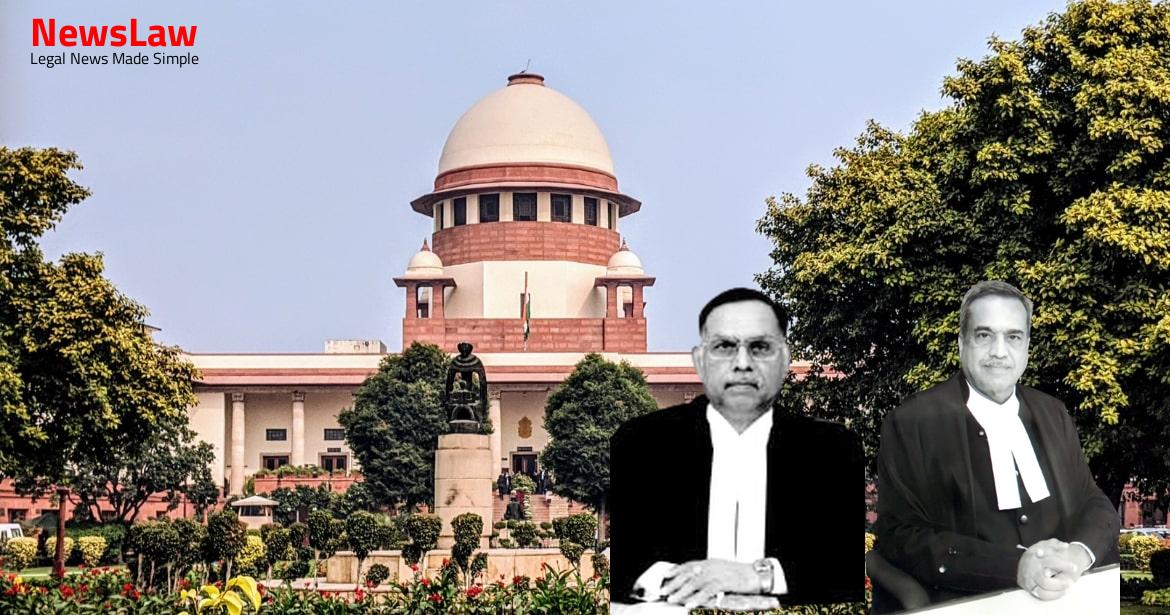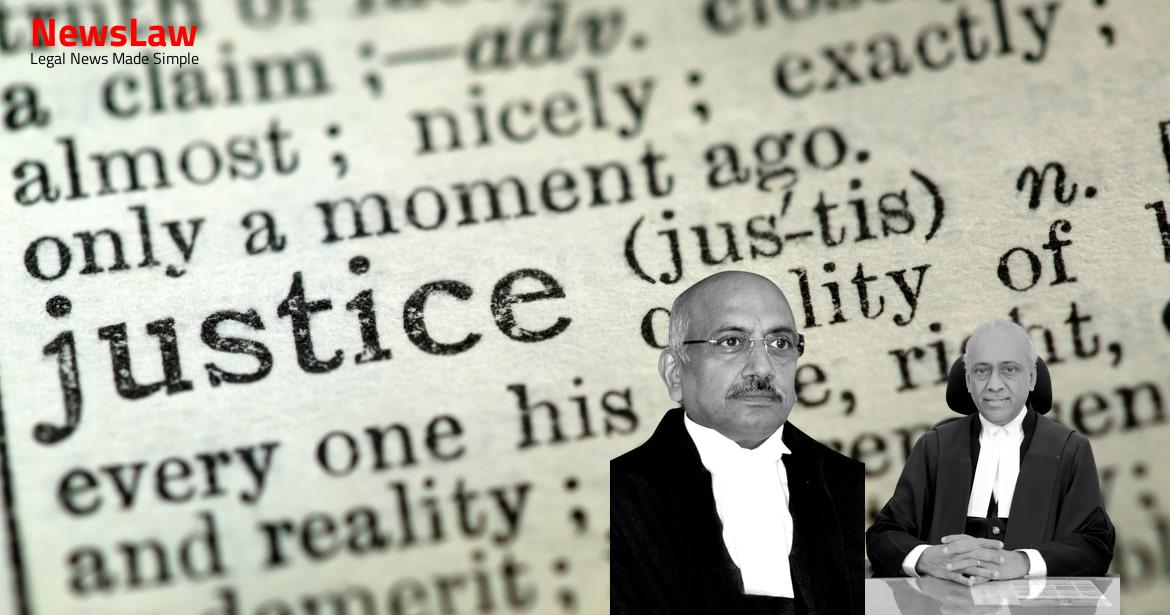Delve into the detailed legal analysis of a case where the rejection of a voluntary retirement application under Pension Regulations was challenged in court. The court’s thorough examination of the regulatory framework and interpretation of key provisions shed light on the complexities of employment laws and retirement benefits. Discover the nuances of the court’s decision in this engaging read.
Facts
- The appellant bank is aggrieved by the judgment and order of the Division Bench of the High Court of Delhi which quashed the rejection of the employee’s voluntary retirement application.
- The employee, who was promoted as Chief Manager SMG-IV, had his writ petition dismissed by the Single Judge in 2006, except for certain allowances.
- The employee appealed this decision, leading to the Division Bench’s judgment in his favor, directing the employer to release his retiral dues as per Pension Regulations, 1995.
- Employee requested waiver of three months’ notice for voluntary retirement
- Employer rejected voluntary retirement request citing ineligibility under Pension Regulations, 1995
- Employee filed Writ Petition (C) No. 16972 of 2005 against rejection
- Employee transferred to Defence Colony Branch, New Delhi in May 2013
- Employee requested 30 days’ leave to visit London due to son’s hospital admission
- Employer refused leave and directed employee to report to duty at Defence Colony Branch
Also Read: Analysis of Seniority Determination in Armed Forces Personnel Case
Arguments
- Shri Ravi Sikri, learned Senior Advocate representing the employer, challenged the High Court’s judgment.
- The argument included that Regulation 29 of Pension Regulations, 1995 was not properly understood by the High Court.
- It was contended that under Regulation 29, voluntary retirement requires employer’s permission/acceptance.
- The rejection of the employee’s voluntary retirement application within three months was highlighted.
- It was emphasized that the decision needed to be made within three months, not served within that time frame.
- The argument pointed out that the employee did not give the mandatory three months’ notice for voluntary retirement.
- Due to this deficiency, the employer rightfully rejected the application, as per Pension Regulations, 1995.
- The employer was dissatisfied with the High Court’s decision, leading to the current appeal.
- Division Bench rightly set aside the communication rejecting the voluntary retirement application
- Employee’s offer to surrender three months salary not a valid waiver of notice period
- High Court erred in determining the employee was transferred, not on deputation
- Division Bench interpreted Regulation 29 correctly and found bar under Regulation 29(1) not applicable
- Employee did not meet statutory requirement for voluntary retirement under Regulation 29(1)
- Departmental proceedings initiated after rejection of retirement application
- Appeal should not have been allowed by Division Bench according to the submissions
Also Read: Judicial Analysis of Section 319 Cr.P.C. Power
Analysis
- The appointing authority must take a decision before the expiry of the specified notice period for voluntary retirement.
- If the appointing authority does not refuse permission before the notice period ends, the retirement is deemed accepted and effective from that date.
- An employee can request waiver of the three months’ notice period with valid reasons.
- The authority may consider the request for curtailment of notice period and relax the requirement if no administrative inconvenience is caused.
- Rejection of voluntary retirement application must comply with the provisions of Regulation 29.
- The decision to accept or reject the retirement application should be made before the notice period expires.
- The rejection of the retirement application must be based on valid reasons and be in line with the regulations.
- Specific reasons must be provided for rejecting a request for curtailment of the notice period.
- The Division Bench of the High Court was justified in quashing the communication rejecting the retirement application.
- An employee can request withdrawal of notice of voluntary retirement before the intended date of retirement with specific approval from the authority
- Employees seeking retirement for permanent absorption in certain bodies are exempt from this rule
- The appointing authority must accept the notice of voluntary retirement, and if no refusal is given before the specified period, retirement becomes effective
- Employees can request a curtailment of the three-month notice period with valid reasons, subject to the appointing authority’s approval
- An employee with twenty years of qualifying service can retire by giving three months notice, with a maximum qualifying service limit of thirty-three years
- Such employees are entitled to an increase in qualifying service of up to five years for pension calculation purposes
Also Read: Analysis of Circumstantial Evidence in Criminal Conviction
Decision
- The rejection of the application of voluntary retirement is held to be bad in law.
- All other subsequent proceedings of departmental enquiry will be null and void and shall be non est.
- There shall not be an employer-employee relationship after voluntary retirement.
- The appeal is dismissed and there shall be no order as to costs.
- The employee is entitled to all retiral benefits on the basis of voluntary retirement.
Case Title: INDIAN BANK Vs. MAHAVEER KHARIWAL (2021 INSC 39)
Case Number: C.A. No.-002760-002760 / 2010



